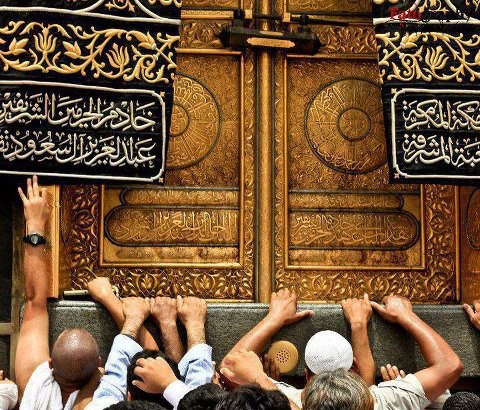The Meaning and Secrets of Hajj

In view of their sublime status, hajj and 'umrah comprise aspects from the rest of the acts of worship. They are accorded meanings, secrets, lessons and signs that are worthy of pause and contemplation in the hope of exposing ourselves to their beauties, perhaps God will grant us the success of realizing their splendor by word and deed.
Hajj and ‘umrah include prayers, spending in charity, fasting, ritual sacrifice, traveling (a migration of both form and spirit), sa'y (traversing as-Safa and al-Marwa), tawaf (circumambulating the Ka'bah), dhikr (making remembrance of God), du'a` (supplication) and jihad (struggling in the cause of God). It represents the commemoration [the worship] of a long line of devotees of God from Prophet Abraham to Prophet Muhammed, the seal of prophets. Hajj is a comprehensive act of worship, a means towards God the Almighty. It is likewise an occasion when a person renews his faith and turns to God in repentance. It is a time when a Muslim discards his sins and returns purified as attested to by the words of the Prophet who said, "Whoever performs hajj and does not commit any rafath1 (immorality) or fisq (indecency), returns [free from sins] as the day on which he was born."2
Hajj has been legislated to realize the true concepts of tawheed (monotheism) and the worship that God, Lord of the Worlds, deserves. It is considered training in commitment and adherence to God's commands. Thus, it includes rites and prohibitions as mentioned in the words of God, Such (is the pilgrimage): whoever honors the sacred rites of God, for him it is good in the sight of his Lord. [Al-Hajj, 32]
Such (is his state): and whoever holds in honor the rites of God (in the sacrificial animal), such (honor) should come truly from piety of hearts. [Al-Hajj, 32]
- It is a place where du'a` or prayer is accepted.
- Simply looking at the Ka'bah is an act of worship in itself.3
3 This has been reported from Prophet by three of his Companions, in a mursal hadith through three chains of transmission, reported from non-prophetic reports of the Companions (may God be pleased with them), and from a group from among the Successors and those who came after them.
: There is a consensus among scholars as well as as an act of worship at the Ka'bah The recommendation of lookingthe Predecessors and Successors that looking at the Ka'bah is an act of worship. Successive generations have practiced this without garnering any criticism. Although some of the chains of transmission of the raised chain hadith on this act of worship are weak, the non-Prophetic reports from the Companions and the Sucessors prove that it has a solid origin. Based on this, the refutation of some of this act of worship and describing it as an innovation (due to the weak chains of transmission of the hadith) is itself an innovation and therefore cannot be acted upon.
The months of hajj begin with the sighting of the crescent of the month of Shawwal and continue until the 10th Dhul-Hijjah i.e. it is permissible for a Muslim to enter ihram for hajj at any time during this period. The months of hajj are well known—God ordained hajj during these months and made them a temporal miqat for this act of worship during which God showers pilgrims with His mercy, accepts their du'a` and the whole [Muslim] community manifests its unity before the entire world.
-------------------------
1 Rafath here refers to sexual intercourse.
2 Recorded by Bukhari (1448, 2632) and Muslim (1350).
 Arabic
Arabic French
French Deutsch
Deutsch Urdu
Urdu Pashto
Pashto Swahili
Swahili Hausa
Hausa
